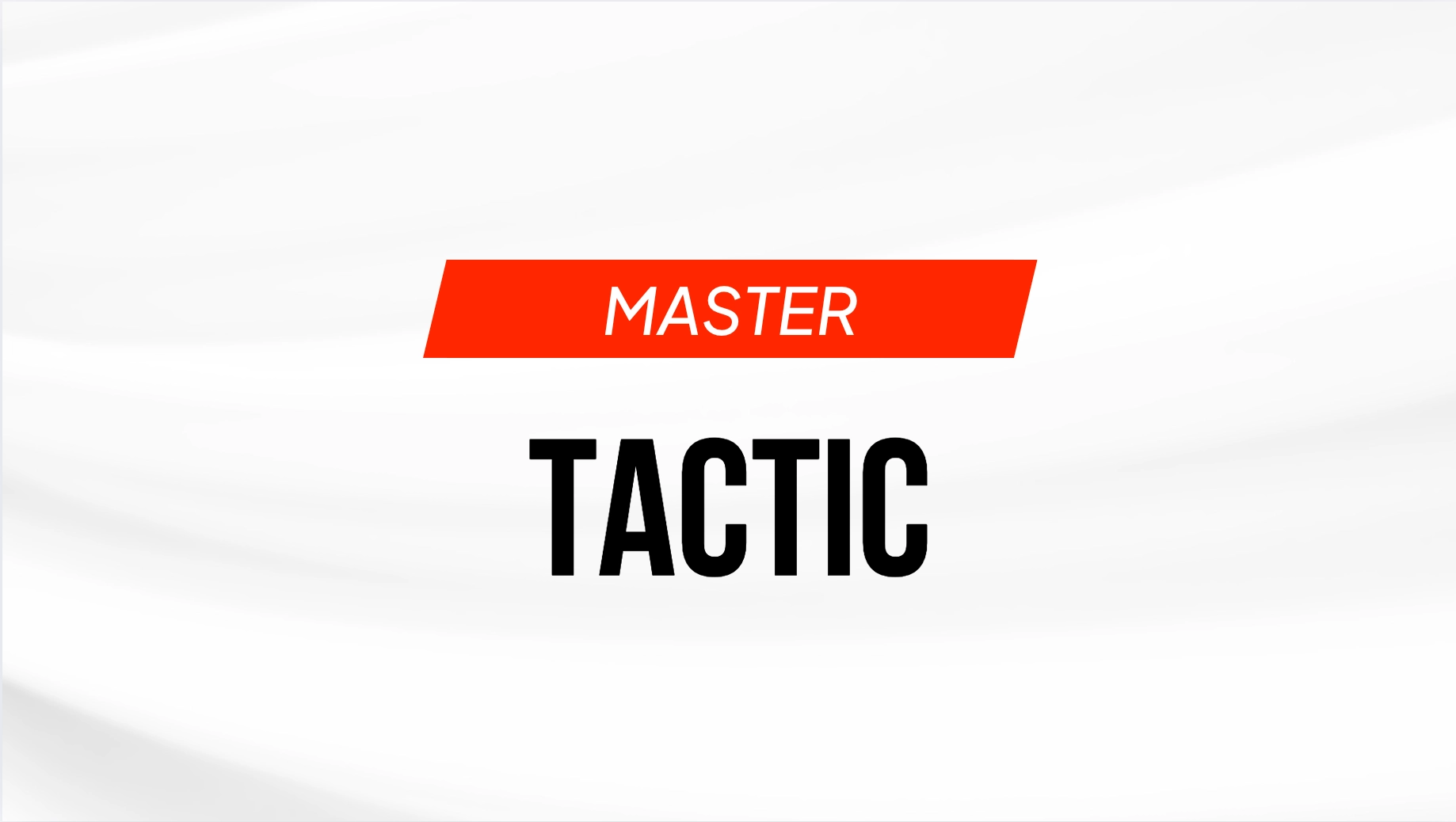
Course Content
Welcome to the Master
-
Welcome to the Master
Welcome Pack
-
Mastermind: Quique Setién
16:43 -
Offensive Phase: 1-4-4-2 System
03:24 -
1-4-4-2 diamond system
09:46 -
Mechanisms for progress
03:23 -
Types of unmarking
05:13 -
1-3-5-2 system
08:37 -
Keys to the 1-3-5-2
10:00 -
Press after possession loss
02:24 -
Pressure Low Block
06:41 -
The double midfielder
02:22 -
Third man
08:55 -
Creation of spaces
04:01 -
Generate lines of 3
06:36 -
Surveillance
02:06 -
The coverages
05:33 -
Direct attack
01:49
UNIT 1 – Introduction to tactical principles
-
Cuestionario inicial
-
Training Methodology
01:03:49 -
Training Monitoring and Evaluation
22:35 -
Game Model
18:22 -
Offensive Phase
34:45 -
Defensive Phase
12:54 -
Game Transitions
20:07 -
Context
11:57 -
Understanding spaces
10:59 -
Resources to overcome the last line
10:35 -
Relationships and interactions between players. Practical analysis
28:18 -
Test MÓDULO 1
UNIT 2 – Offensive principles
-
Cuestionario inicial
-
Factors for dominance of a phase of game
26:34 -
Offensive principles with the ball
26:37 -
Offensive principles without the ball: unmarking
12:56 -
Offensive principles without ball: space and support
18:10 -
Offensive principles without the ball and dynamising the game
15:13 -
Technical-tactical means to dynamise the game
26:11 -
Possession, balance and offensive movements
20:04 -
Pace of play and factors to counteract systems
16:07 -
Combating retracted systems
18:36 -
Combating advanced systems
15:22 -
Test MÓDULO 2
MÓDULO 3 – Football Build-Up
-
Cuestionario Inicial
-
Positioning and mobilities
24:08 -
Possession + Progression
19:04 -
Forward pressure
25:52 -
Practical contexts
13:20 -
Spaces at the start of the game
27:08 -
Game development and spaces
15:29 -
Press and set pieces
10:36 -
Keys to attack: concepts
27:22 -
Different Build Ups
23:38 -
Youth Team
19:57 -
Advantages from the initial structure
21:30 -
Build-Up Analysis
22:33 -
Test MÓDULO 3
UNIT 4 – Defensive principles
-
Cuestionario Inicial
-
Presentation
07:28 -
Context
19:04 -
Type of defensive marking in football
17:04 -
General concepts 1
13:28 -
General concepts 2
15:01 -
General concepts 3
15:47 -
Individual tactics and small group behaviour 1
15:13 -
Individual tactics and small group behaviour 2
15:27 -
Pressure in the opponent’s half of the field. High block
29:43 -
Medium block press
24:17 -
Low block press
25:47 -
What type of pressure is best for me?
09:52 -
Working on defensive transitions
17:13 -
Reflections and final conclusion
04:20 -
Test MÓDULO 4
UNIT 5 – Pressure and blocks in football
-
Cuestionario Inicial
-
Introduction to the high block
21:13 -
Build-up patterns zone 1
23:31 -
Structure in intermediates
24:50 -
Paired structure
25:29 -
Structure with Wingers
23:02 -
Working on the behaviour of structures
21:43 -
Working on general behaviours: Distances between lines – Defensive duels
24:34 -
Working on general behaviours: When we go – When we leave
21:45 -
Conclusions
20:42 -
Introduction to macro concepts
09:54 -
Build-up
28:25 -
Attack on the middle block
14:03 -
Structure vs. structure
25:51 -
Attack on the last third
34:58 -
High press
29:48 -
Middle block
28:14 -
Low block and area defence
29:20 -
Test MÓDULO 5
UNIT 6 – The tactical microcycle
-
Cuestionario Inicial
-
Introduction
08:28 -
Frame of reference
21:45 -
Essential ideas for its development
17:24 -
Programming, content and task design
24:14 -
Initial tasks
27:25 -
Second or intermediate tasks
21:48 -
Modelling or extensive tasks
18:53 -
Previous microcycle
24:42 -
Development of the microcycle
27:43 -
Analysis, evaluation and conclusions
26:36 -
Test MÓDULO 6
UNIT 7 – The Game Model
-
Cuestionario Inicial
-
What is the game model?
15:18 -
How to choose a game model?
16:08 -
How to create a game model?
51:18 -
Model of conditioned play. Real experience in national team
24:17 -
Introduction to the game model. Combinative model.
11:39 -
Offensive phase in the game model
22:49 -
Keys to positional game. Overcoming lines through passing.
07:39 -
Numerical superiorities
09:50 -
Organisation through the ball
15:46 -
The importance of passing
10:28 -
Space generation, triangulation and free men
09:41 -
The third man
05:28 -
Context. Key aspects within a microcycle
11:50 -
Microcycle and game model
55:21 -
Real case
53:48 -
Sports planning
01:01:20 -
Make your difference. Build your way
35:29 -
Test MÓDULO 7
UNIT 8 – Position Game Model
-
Cuestionario Inicial
-
Presentation
01:21 -
What is positional game?
10:00 -
Ball goes to player
12:43 -
Non-systemic positions
09:09 -
Functional roles
03:26 -
Benefactor = Fixer
15:59 -
Ball fixings
23:32 -
Behavioural patterns
16:03 -
Creating advantages
14:17 -
Pass as intentional vehicle
11:11 -
Own-field starts
22:58 -
Attacks in the opponent’s field
15:57 -
Design of training exercises
30:30 -
Test MÓDULO 8
UNIT 9 – “Rainbow” Model at Arsenal F.C.
-
Identity and rainbow game
20:19 -
Key situations and structure of the model
18:31 -
Game model practical examples
21:10 -
Arsenal FC Game Model
19:43 -
Methodology at Arsenal FC
10:37 -
Principles and practical concepts
30:13 -
Training contents
13:00 -
Training principles
24:42 -
Planificación y periodización del proceso de entrenamiento
22:07
UNIT 10 – Set pieces
-
Cuestionario Inicial
-
Importance and value of the set-pieces
17:22 -
Methodology at Real Valladolid C.F.
18:55 -
Concentration at set-pieces
20:03 -
Generalities and types of offensive set-pieces
20:29 -
Control Variables and Methodology at Real Valladolid
20:44 -
Practical work proposal
18:46 -
Generalities and types of defensive set-pieces
17:56 -
Control Variables and Methodology at Real Valladolid 2
18:47 -
Practical work proposal
23:05 -
Test MÓDULO 10
UNIT 11 – Game phases: analysis
-
Cuestionario Inicial
-
Introduction, description of game phases
15:27 -
Offensive phase
25:46 -
Attacking phase case study: Ball out
25:30 -
Defensive phase
21:56 -
Defensive phase case study: Pressing
19:48 -
Transition from attack to defence
23:37 -
Transition from defence to attack
26:07 -
Set-pieces
22:32 -
Analysis of game phases through the use of data
21:14 -
Test MÓDULO 11
UNIT 12 – Game phases: Task design
-
Pucela Environment
22:18 -
Pucela Structure
20:11 -
Monitoring and justification of tasks
21:56 -
Defensive behaviours
23:18 -
Offensive behaviours
16:21 -
Transitions training
12:16 -
Training Methodology Analysis
15:15 -
Test MÓDULO 12
UNIT 13 – Tasks according to systems
-
Cuestionario Inicial
-
Introduction
14:34 -
Game system and structures
19:54 -
Task typology
21:55 -
The rondo
12:55 -
Positional technical figures
18:34 -
Conservation-Positional recovery
19:16 -
Sectoral, cross-sectoral and collective tactical work
28:32 -
Double area
11:35 -
Conditional match
14:36 -
Test MÓDULO 13
STUDENT’S HOMEWORK
-
Case Study 1 – Match Analysis
01:40:20 -
Case Study 2 – Match Analysis
01:37:38 -
Case Study 3 – Training Session
Final Quiz
-
TEST FINAL

